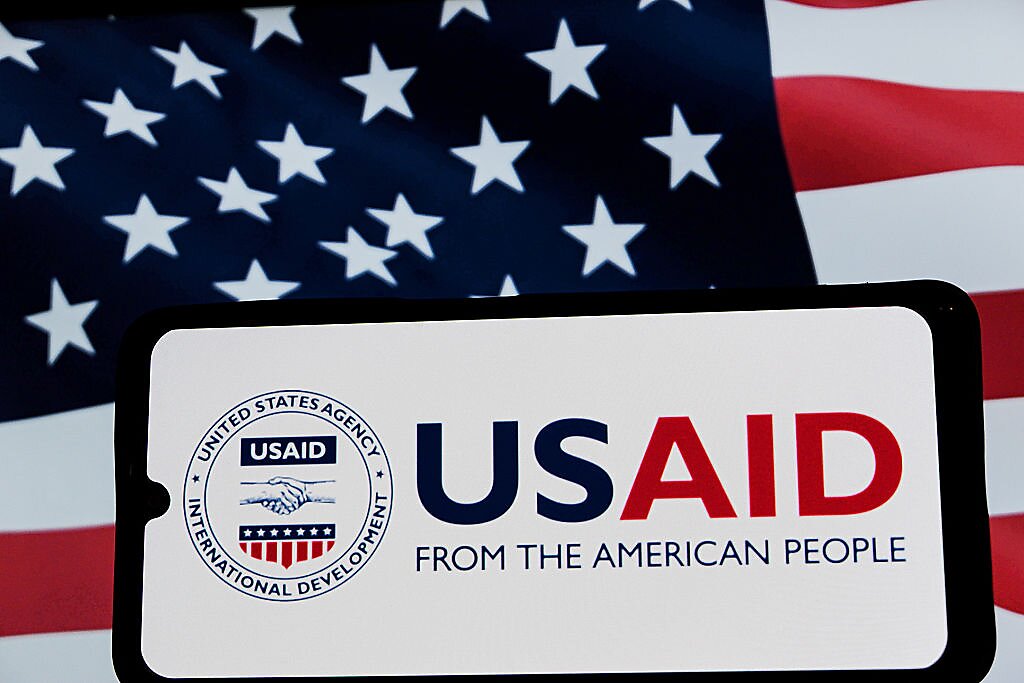
A Good Start: Congress Cuts Funding for USAID and Other Foreign Aid Programs
The Rescissions Act of 2025, signed into law by President Trump on July 24, retracts approximately $8 billion in funding from the US Agency for International Development (USAID) and other foreign assistance programs. While the legislation does not abolish USAID outright—a step requiring congressional action—it marks a significant reduction in the agency’s budget and operations. For libertarians and advocates of limited government, the cuts are a meaningful policy victory.
In January, the administration announced a broad reevaluation of US foreign aid. The following month, it released a report from the Department of Government Efficiency (DOGE) identifying examples of “waste and abuse” within USAID. Notable expenditures included $70,000 for a DEI-themed musical in Ireland, $2.5 million for electric vehicles in Vietnam, and $6 million for tourism development in Egypt.
Elon Musk, then overseeing DOGE, publicly criticized USAID, tweeting, “USAID was interfering in governments throughout the world and pushing radical left politics.” It was “time for it to die,” he added. Although USAID had been distributing foreign aid since 1961, Secretary of State Marco Rubio announced the cancellation of approximately 83 percent of USAID’s contracts—around 5,200 in total. The remaining 1,000 would be transferred to the State Department.
By July 1, the agency had been absorbed by the State Department, and roughly 5,800 employees had been laid off or placed on leave. In public remarks, Rubio stated, “USAID viewed its constituency as the United Nations, multinational NGOs, and the broader global community—not the US taxpayers who funded its budget…. Too often, these programs promoted anti-American ideals and groups, from global ‘DEI,’ censorship and regime change operations, to NGOs and international organizations in league with Communist China and other geopolitical adversaries. That ends today ….”
The rescissions were carried out under the authority of the Congressional Budget and Impoundment Control Act of 1974, which allows Congress to reclaim unspent funds. Some of the rollbacks:
- $2.5 billion of the $3.9 billion in FY2025 Development Assistance funds was rescinded.
- $460 million was removed from the Assistance for Europe, Eurasia, and Central Asia account. The Office of Management and Budget (OMB) justified the cut by noting the program “has become a mechanism for funding wasteful programs, including woke activities like gender and climate programming, which diverge from the targeted goals of the account.”
- $125 million reclaimed from the Contribution to the Clean Technology Fund, which OMB says “invests in Green New Deal projects in developing countries that do not reflect America’s values or put the American people first.”
- $125 million was cut from USAID’s operating budget.
Other programs affected include International Peacekeeping Activities, the Democracy Fund, the Complex Crises Fund, the Inter-American Foundation, the US African Development Foundation, and the US Institute of Peace.
For decades, scholars at the Cato Institute have argued for the termination of USAID and the broader foreign aid apparatus. As stated in the Cato Handbook for Policymakers (9th edition): “Congress should abolish the US Agency for International Development and end government-to-government aid programs.” As for the billions spent by the US on overseas development assistance every year, Cato Vice President for International Studies Ian Vasquez reports in the Handbook:
- There is no correlation between aid and growth.
- Aid that goes into a poor policy environment does not work and contributes to debt.
- Aid conditioned on market reforms has failed.
- Countries that have adopted market-oriented policies have done so because of factors unrelated to aid.
- There is a strong relationship between economic freedom and growth.
The empirical record, Vasquez contends, consistently shows that foreign aid fails to achieve its intended outcomes and can be counterproductive. The redistribution of US tax dollars abroad has little demonstrable benefit and, in many cases, undermines economic development and national interests.
Back in 1955, the libertarian writer Henry Hazlitt wrote in his Newsweek column, “Once a government bureaucracy has been set up to do any job whatever, it will find endless excuses for expanding, prolonging, or perpetuating that job. This is the sad history of our postwar foreign aid. Originally urged by Secretary Marshall in 1947 to meet what was then regarded as a temporary emergency situation, foreign aid has gone on and on, from year to year, constantly changing its stated purposes, constantly changing its name, but showing not the slightest tendency to terminate or even taper off.”
The Rescissions Act of 2025 breaks with that pattern. It took 70 years, but we now know that a government program may not be the closest thing to eternal life on this earth—that a government bureaucracy can be tapered off, if not de facto terminated. True, it is a small victory—$8 billion rescinded—but it’s a good start. Hazlitt is likely smiling somewhere, and we should, too.



